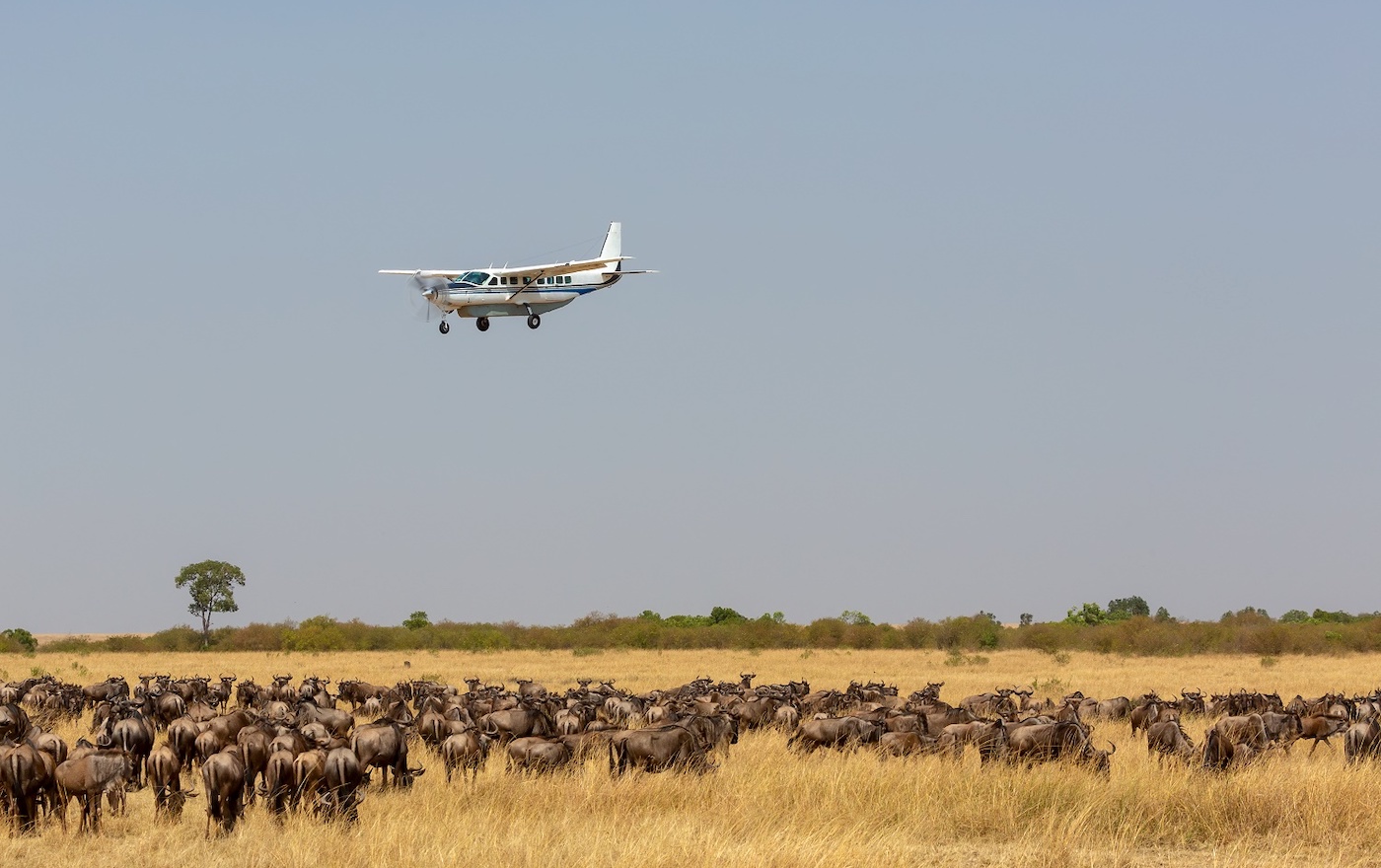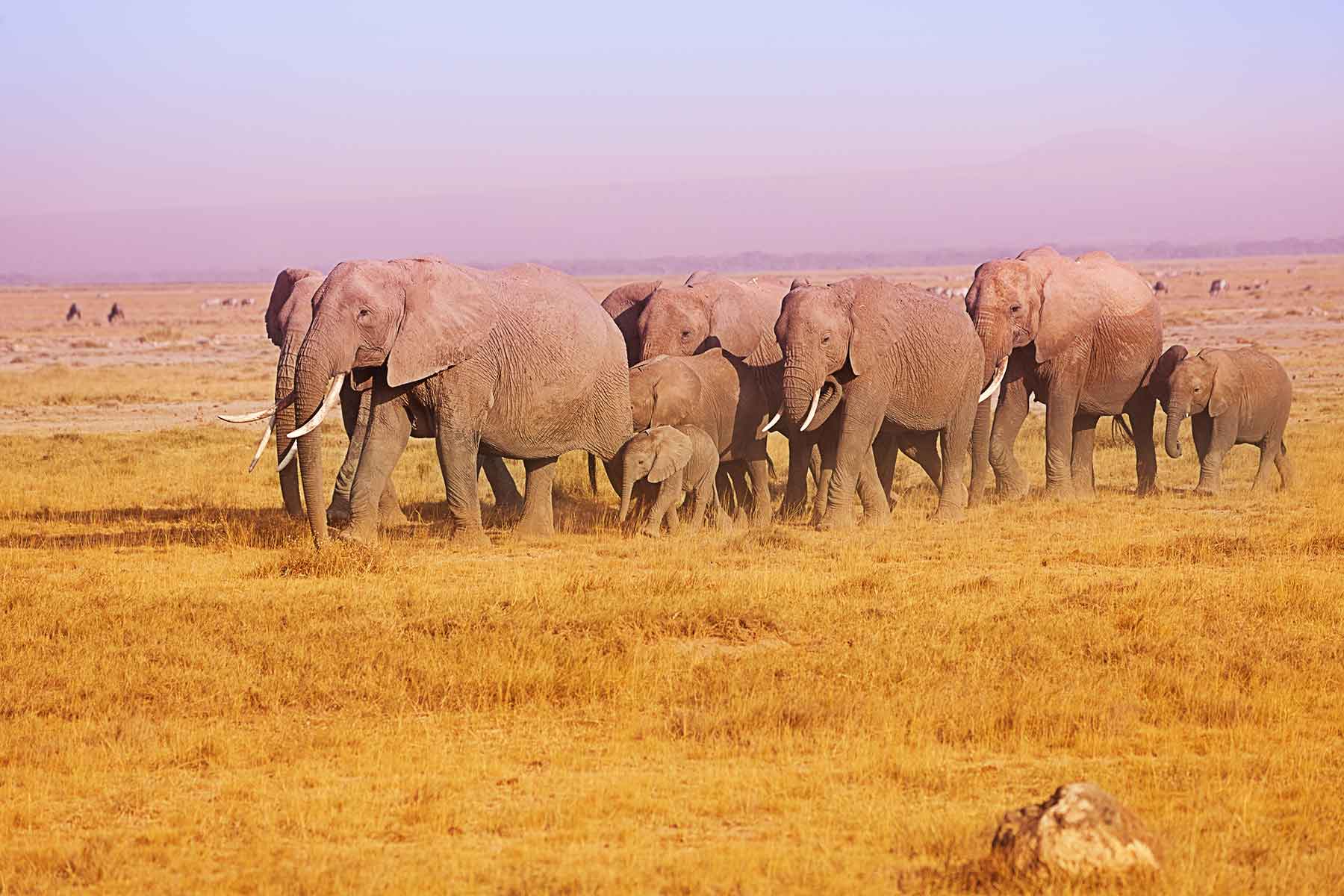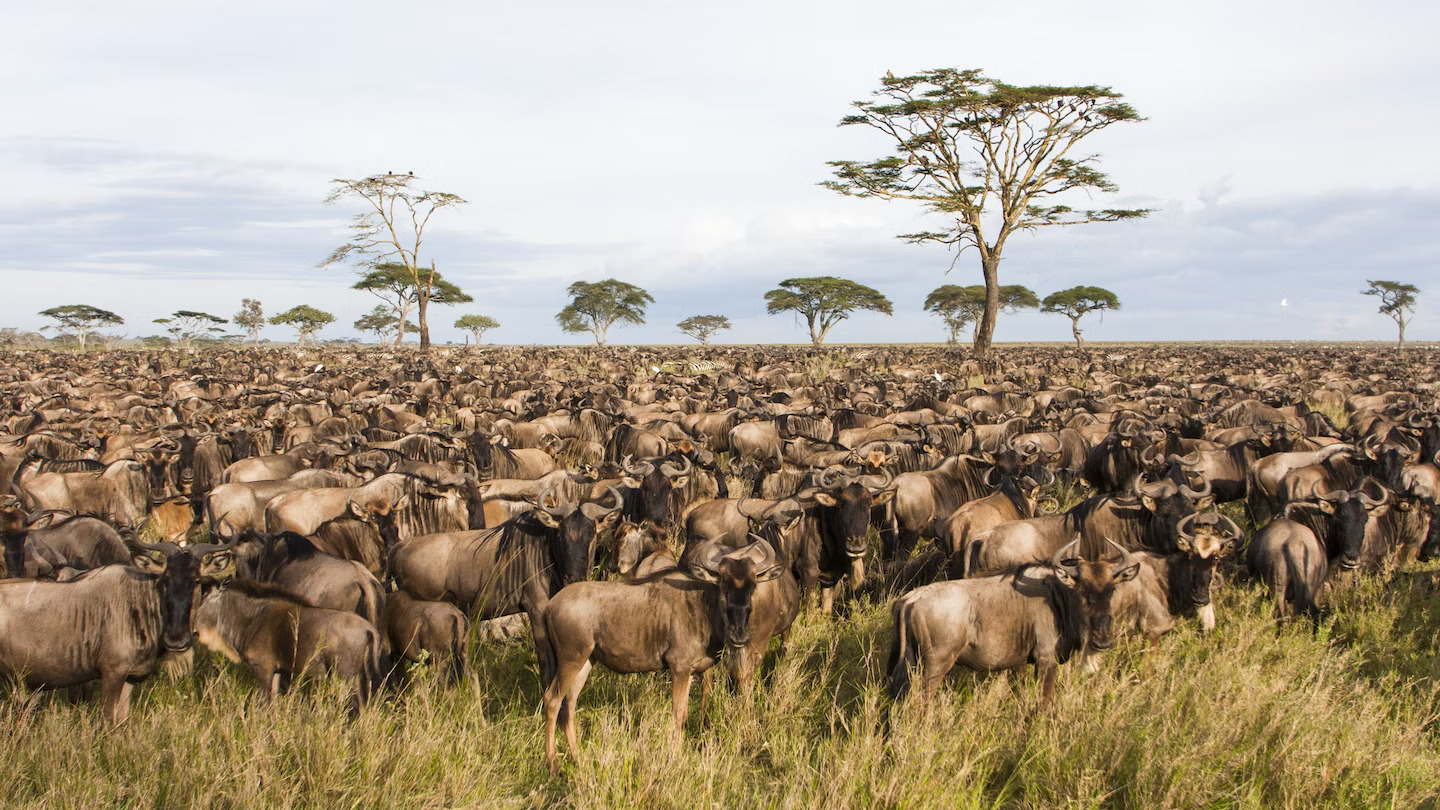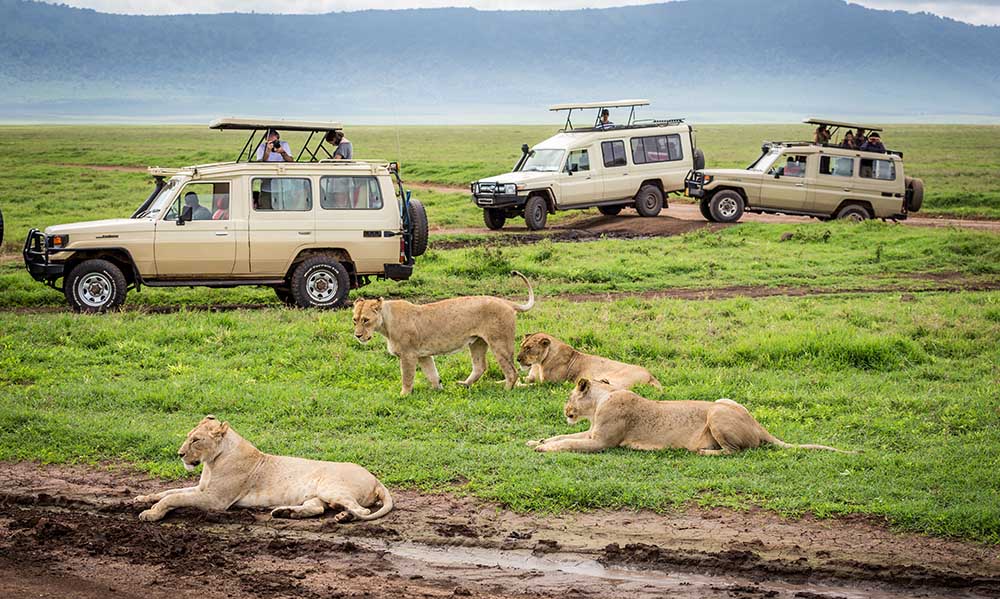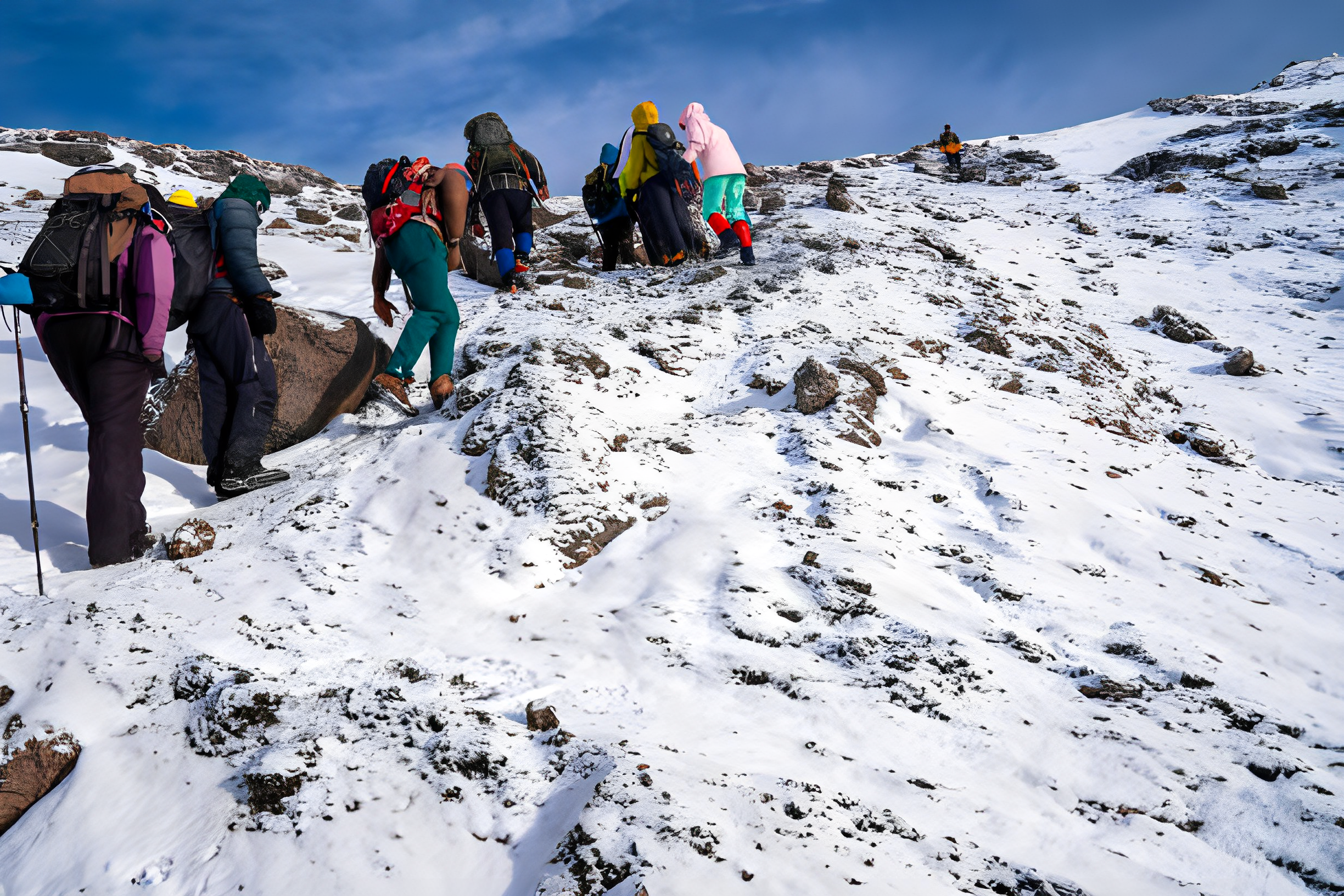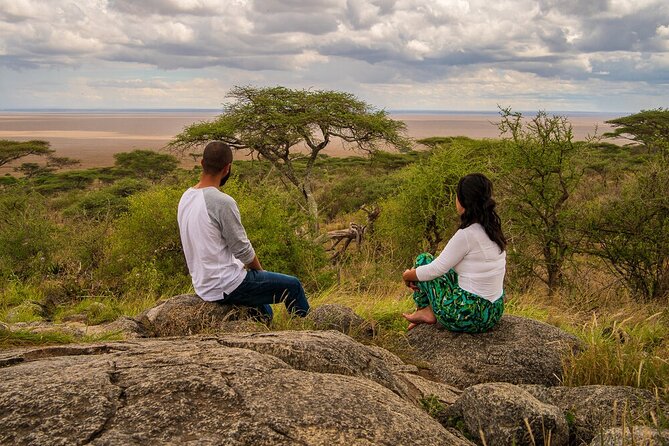Arusha National Park
Attractions for the Tourist:
- Mount Meru:
This dormant volcano stands as the centerpiece of the park, offering stunning views and challenging hikes for adventurous tourists. - Ngurdoto Crater:
A breathtaking sight formed by the collapse of a volcano, now a lush haven for wildlife, including buffalo and warthogs. - Momela Lakes:
A series of seven shallow lakes, each with its distinct hue due to varying mineral content, attracting a plethora of birdlife. - Colobus Monkeys:
The park is home to black-and-white colobus monkeys, offering opportunities for primate spotting. - African Elephants:
Although smaller in number compared to other parks, Arusha National Park hosts a population of African elephants, providing memorable wildlife encounters.
Things to Do:
- Game Drives:
Explore the park’s diverse ecosystems and wildlife through guided game drives, where you can spot a variety of animals, including giraffes, zebras, and leopards. - Hiking:
Embark on a trek up Mount Meru or opt for shorter trails around the park to witness stunning landscapes and diverse flora and fauna. - Canoeing:
Enjoy a serene canoe ride on the Momela Lakes, surrounded by lush vegetation and with the chance to observe birdlife and hippos. - Birdwatching:
With over 400 bird species recorded, Arusha National Park is a paradise for bird enthusiasts, offering ample opportunities for birdwatching. - Cultural Tours:
Engage in cultural tours to nearby Maasai villages to learn about their traditional way of life and interact with the local community.
Fun Facts about Arusha National Park:
- Biodiversity:
Despite being one of Tanzania’s smaller parks, Arusha National Park boasts incredible biodiversity, ranging from montane forests to open savannas. - Film Location:
The park has served as a filming location for several movies and documentaries due to its stunning landscapes and diverse wildlife. - Historical Significance:
Arusha National Park was established in 1960 and holds historical significance as one of the first national parks in Tanzania. - Unique Wildlife:
Apart from the more common safari animals, the park is home to unique species such as the shy and elusive red forest duiker. - Volcanic Features:
The park’s landscape is shaped by volcanic activity, evident in the presence of Mount Meru and the Ngurdoto Crater.
Best Time to Visit Arusha National Park:
The best time to visit Arusha National Park is during the dry season, from June to October, and from January to February. During these months, wildlife viewing is optimal, as animals gather around water sources, and the weather is generally pleasant for outdoor activities.
FAQs:
Do I need a guide for hiking in Mount Meru?
It is highly recommended to hire a guide for hiking in the park, both for safety reasons and to enhance the experience with their knowledge of the area.Can I camp in Arusha National Park?
Yes, camping is allowed in designated areas within the park, but it is essential to obtain permits and adhere to park regulations.Are there accommodation options within the park?
While there are no lodges or camps inside the park, there are various accommodation options available in nearby towns like Arusha and Moshi.Is it safe to canoe on the Momela Lakes with hippos present?
Park authorities ensure safety measures are in place for canoeing activities, and experienced guides accompany visitors to mitigate any risks associated with wildlife encounters.What should I pack for a visit to Arusha National Park?
Essential items to pack include sturdy hiking boots, lightweight clothing, a hat, sunscreen, insect repellent, binoculars, and a camera to capture the stunning scenery and wildlife.
How can we help you?
By planning carefully and choosing the right experiences, you can create an unforgettable adventure for your entire family.
